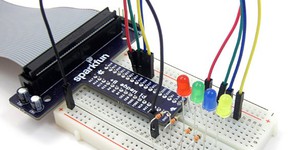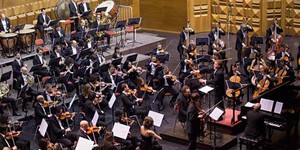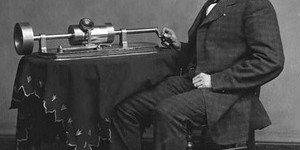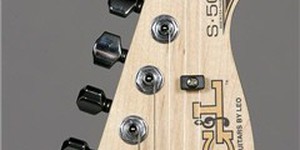Seventh Grade, Music Science Projects (19 results)
While everyone else is paying attention to what they see, maybe you're focusing on what you can hear. Explore the physics of sound, musical instruments, and even how people respond when they hear music.
|
Select a resource
Sort by
|
Lights and music make a great combination! Getting sound and lights to complement each other just right helps set the mood for everything from DJ parties and concerts, to theater shows, the circus, and ballet performances. You can put together your own lights and music show using
a Raspberry Pi.
Check out the video to see what this simple, but fun, project looks like:
Once you have the basics down, you can keep tinkering with the circuit, the sounds, and the program to make fancier…
Read more
Featured
Have you heard that garlic powder is supposed to inhibit the growth of bacteria? Which do you think would make a better disinfectant: a solution of garlic powder or a solution of bleach? This project shows you a straightforward way to compare the effectiveness of different disinfectants (or other antimicrobial agents), by measuring zones of inhibition on a culture plate.
Read more
Have you ever seen a great movie and then rushed out and bought its soundtrack? Did the soundtrack bring back the thrill of an action chase? Or the sadness one of the movie's characters felt? Music is a big part of the movie experience. It intensifies the emotions in scenes so that you do not just jump when that hairy spider comes around the corner, you scream! In this music science fair project, you will find out if happy, sad, scary, and action scenes in movies use music with the same…
Read more
New
If someone asks you to draw a picture of a doctor, lawyer, or engineer, what first pops into your mind? The race and gender of the person you imagine might be shaped by your personal life experiences, such as whether you have family members in those professions, or what representations of them you have seen on TV or online. What do you think will happen if you ask an artificial intelligence (AI) program to generate the picture instead? Will pictures generated by AI reflect the true real-world…
Read more
Don't you just love listening to music? In the 1980s, people listened to music on the Sony® Walkman®. Now, people listen to their favorite tunes on MP3 players and on their Apple® iPhonesTM. But listening to music on devices actually started in the late 1800s and early 1900s. In those days, people would gather around their phonograph to listen to their favorite tunes—people were just as amazed with the phonograph as you would be to handle an iPhone. In this physics science…
Read more
Have you ever blown across a bottle's top and made a pleasant, resonant sound? If so, have you wondered how that note is made exactly? A bottle is actually what is called an air cavity, also known as a Helmholtz resonator. Ocarinas are examples of musical instruments of this type. In this science project, you will use bottles to investigate how the volume of air in the cavity affects the pitch of the note that it makes. All you need are some bottles, water, a ruler, and a chromatic tuner.
Read more
Do you love to make music, but do not have access to all the instruments you would love to play? Check out this fun science fair project about the physics of musical sound production. You will make musical instruments with drinking straws, one for each note on a one-octave major scale. Can you figure out the right lengths for a series of straw "oboes" in order to play a musical scale?
Read more
New
Remembering to take medicine at the right time can be hard, especially if you need to take multiple medications at different times of day. It might not be a big deal if you forget to take your daily multivitamin, but for some people, forgetting to take medication at the right time can be dangerous. What if you had a device that could not only set off an alarm at the right time, but also automatically dispense the right pills for you? In this project, you will build an automatic medicine…
Read more
Here's a fun science project for anyone who plays an electric guitar. You'll learn about the physics of vibrating strings, and find out why the tone of your guitar changes when you switch between the different pickups.
Read more
The American holiday of Thanksgiving is a favorite of many. Friends and family getting together, a big feast, fancy china and glassware on the table. Who can resist the temptation to make the wine glasses sing? Find out more about how this works with this project!
Read more
Are there some songs that always make you feel sad when you hear them? How about "Scarborough
Fair," George Gershwin's "Summertime," or the Beatles' "Eleanor Rigby"? All of these songs are in a minor key. Minor keys have more intervals, or halftones, than major keys do. Some musicologists (people who study music) maintain that minor-key songs are more likely to be perceived as sad, while major-key songs are more likely to be interpreted as happy. You can research the competing explanations…
Read more
Walk into a fitness club and what kind of music do you hear? Slow, sparkling, relaxing music? Or driving, "up-tempo" songs that are designed to encourage you to move? Fitness clubs and other businesses, like restaurants and grocery stores, use background music to set the mood and to determine how fast they want their customers to move. The tempo of the background music is a key component to the environment that businesses want to create. Tempo is an important number or word inscribed by a…
Read more
Did you know that making a musical instrument is not just an art, but a science, too? You can discover just how scientific by building your own xylophone (or a set of chimes) from copper pipe. First you'll need to do some research about the math and physics involved in the sounds of a xylophone. For example, there are equations that describe the transverse (side-to-side) vibrations of a pipe. These vibrations create the sounds you hear. So, to get specific sounds, xylophone makers must apply…
Read more
|
Explore Our Science Videos
Rainbow Fire: Where do Fireworks get Their Colors?
How Far Can a Sneeze Go?
Strawberry DNA Extraction














